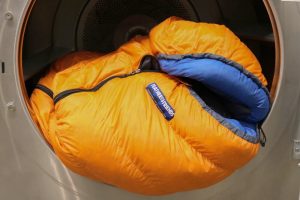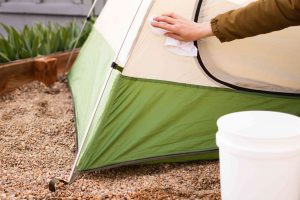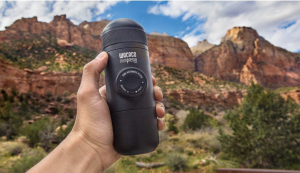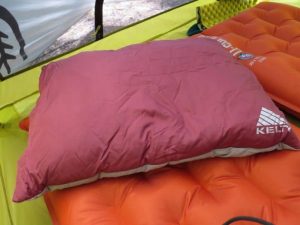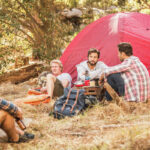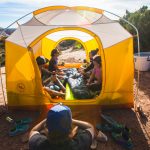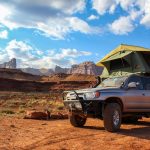If you’ve never gone camping before, but are interested in trying it out for the first time, there are a few things that you should know. Camping can be an incredible experience and it’s also a lot of fun. If you’re ready to take your first step into solo camping, this article is for you. We have created a guide with all the information one needs to plan their first solo camp-out.

Table of Contents
Plan Ahed Trip
Camping can be a lot of fun, but it’s also important to plan ahead. If you’re not prepared for your camping trip, it will end up being more difficult than enjoyable. To start planning your first solo camp-out, here are some steps that you should consider:
- Make A Plan: First things first; make sure you have a plan. It’s important to come up with an itinerary for your trip, regardless of how long you’re going to be out. If this is your first time camping solo, it might not hurt to stay close by in case anything goes wrong.
- Location: Once you have a rough idea of how long your trip will be, it’s time to decide on the location. If you’re not sure where would be best for your first solo camping experience, research different places in your area that might work well. You can also ask friends or family members if they know any good spots around town.
- Transport: Once you’ve decided on a location, it’s time to figure out how you’re going to get there. If possible, try and scout the area ahead of time so that when the day comes for your trip, all you have to do is leave straight from home. You can also choose an alternate route in case anything goes wrong or if transportation becomes an issue. If this is your first time solo camping, it might be better for you to drive. Driving allows you to bring everything that you’ll need with little hassle and can also give you the opportunity of setting up camp close by wherever it is that you’re going.

- Checklist: Now that you know where to go, it’s time to pack up your things and get ready for the trip ahead of you. Make sure that before you leave, everything is packed into one backpack or duffle bag so that when it comes time to set up camp, all you have to do is take out the bag and start unpacking. This will save you a lot of time as opposed to having to dig through your closet or car for each item that you need.
Note: Once everything is packed into the duffle bag, it’s important that you look over your list to ensure that all items are there. If anything was forgotten, you’ll need to go back and get it before you leave. The last thing you want is to find out that something was left behind once you’re already at your destination.
- Set-Up: Now that everything has been packed and checked off the list, it’s time to make a plan for setting up camp. If this is your first solo camping experience, take some time to familiarize yourself with all items needed before starting anything else.

Solo Camping Checklist Essentials
No matter how long or short of a trip it is, there are some camping essentials that everyone should bring on their first solo camp-out adventure. These items will help keep you safe and make sure that everything goes smoothly. Make sure to bring:
- Tent – A tent is absolutely essential for solo camping. This will be your shelter and it’s important to make sure you have one that can protect against the elements such as wind, sun, rain, etc. If this is going to be your first time setting up a tent alone, practice at home so when it comes time to set it up, you know exactly what to do.
- Sleeping bag/Pillow – A sleeping bag can be a lot more comfortable than having to sleep on the hard ground and they’re also great for keeping warm throughout the night. If possible, it’s important that your sleeping bag is rated for low temperatures so that you don’t wake up freezing at night. It’s also helpful to have a pillow so that your head isn’t stuck against the ground all night long.
- Tarp – A tarp is great for making sure that you’re protected against the elements whether it’s rain or sun. You can also use a tarp to cover your gear and keep everything dry when you need to go in search of more firewood, etc.
- First Aid Kit – Having some sort of first aid kit is important so that if anything goes wrong, you have the materials needed to clean and dress any wounds as well as help prevent infection.

- Matches – Matches are great for starting fires so that you can keep warm at night or cook your food over a fire rather than having to use a stove or other alternative methods of cooking.
- Food/Water – Make sure that you bring enough food and water to last throughout your trip. If there are any sources of freshwater nearby, make sure that you have containers for collecting the water so that you can stay hydrated while camping solo.
- Sleeping Mat – A sleeping mat can provide some insulation between you and the ground. This is great for keeping warm at night or not feeling so much pain when crawling out of your tent in the morning, etc.
- Flashlight – Having a flashlight on hand is important if you find yourself needing to go anywhere after dark such as collecting more firewood, finding the bathroom, etc.
- Clothing – Make sure that you have enough warm clothing for the weather at night. It can get chilly no matter what time of year it is so layers are best when camping solo in case it gets too cold or if you need to remove a layer due to an increase in heat throughout the day.
- Camping Gear – Depending on the conditions that you’re going to be camping in, make sure that you have all gear necessary for keeping warm and safe during your trip.
- Phone/Charger/Power Bank – If possible it’s a good idea to bring a phone with a charger so that if anything should happen or if there is an emergency, you can call for help.
For an additional list of what to bring on your camping trip, check our guide for more information: Camping Checklist and Essentials Guide 2021 – Everything You Need to Know, or download our PDF Checklist.

First Aid Kit Checklist
- Bandages – If you have a cut or scrape yourself, it’s important to clean and bandage the area so that there isn’t any risk of infection.
- Antibiotic Ointment – Antibiotic ointment is great for cleaning wounds as well as preventing infections from setting in. It also works wonders with bug bites if you’re going camping during the warm months of the year.
- Cleansing Pads – These are great for cleaning out small cuts and scrapes as well as other wounds that may become infected if not cleaned properly after an injury occurs.
- Tweezers – Tweezers can be used to remove splinters or ticks which is important when camping in areas where they’re common.
- Scissors – Having a pair of scissors is important for cutting bandages, tape, or anything else that may need to be cut in an emergency situation.
- Safety Pins – Safety pins can come in handy if any clothing should rip and they’re also great for holding up makeshift bandages until real ones can be applied.
- Tape – Duct tape is great for covering larger wounds and keeping them clean.

- Alcohol Wipes – Alcohol wipes are useful to have on hand in case you need to sterilize an area of the body before applying a bandage or ointment.
- Cotton Balls/Q-tips – Cotton balls and q-tips can be used to clean out wounds and Q-tips can also be used to apply ointment or other liquids to a wound.
- Sterile Pads – Sterile pads can be helpful in case you get any dirt or debris stuck under your skin. They also help stop bleeding from wounds when they’re applied correctly to an open injury.
- Thermometer – If you have the materials needed to make a fire, having a thermometer is important for knowing how hot or cold it is outside of your tent so that you can dress accordingly before heading out into the wild.
- Compass – A compass is important when it comes to finding your way back home if you get lost while exploring the surrounding areas of your campsite. You should always have one on hand in case anything goes wrong and getting turned around, even just slightly, can result in being completely off track from where you were going.
- Bug spray – Mosquitos, flies, bees/wasps, etc. are out in full force while you’re camping solo so it’s important to bring bug spray with you for protection against bites that could lead to irritation or
Note: For how to read your compass, check out our Navigation Guide
Fire Starters – Having fire starters can be great if you find yourself in a situation where starting a fire is difficult or impossible without them, especially when there’s rain outside and it becomes harder to start one by using traditional methods.

Food & Water
- Water Bottle – Having a water bottle is important for staying hydrated when you’re camping solo. This can be especially helpful if your campground doesn’t have great access to clean drinking water or it’s hard to reach the source of the fresh tap water available on site. A collapsible, reusable bottle will make things easier since they take up less space when empty and can be packed into a backpack or bag to take with you as you explore.
- Water Purification Tablets – If your campground doesn’t have great access to clean drinking water, it’s important for safety reasons that you bring some along in case of an emergency. These tablets will make the water drinkable by killing bacteria and other microorganisms that may be present in the water.
- Food & Snacks – Bring some food along on your solo camping trip to keep yourself nourished and energized throughout the duration of your time away from home. There are tons of options for pre-packaged or easy-to-make meals depending on how much you want to cook while you’re away or what types of food you like.
- Camping Stove – If you do choose to pack along some pre-packaged meals, it’s important that your camp stove is packed as well so that the food can be prepared and cooked over a fire for consumption.
- Charcoal/Lighter Fluid – It’s also possible to cook food over a fire using these materials, though it can be difficult to get the coals hot enough for cooking purposes without lighter fluid. That being said, charcoal is still useful even if you don’t bring any other tools besides what’s necessary to light them with in case an emergency should arise while you’re away from your campground and need to make a fire for warmth or to cook food over.
- Fire Starters – Having fire starters can be great if you find yourself in a situation where starting a fire is difficult or impossible without them, especially when there’s rain outside and it becomes harder to start one by using traditional methods.

Clothes & Footwear
- Raincoat – If it’s going to be raining while you’re outside in the wilderness, having a raincoat is essential for staying dry and covered up.
- Waterproof Boots/Sneakers – You can’t wear your raincoat all of the time and you’ll need to get out of your tent from time to time. Having a pair of waterproof boots or sneakers will help keep your feet dry when walking through wet/rainy areas, mud puddles, etc.
- Change of clothes – It’s also important to have an extra change of clothes packed away in your bag just in case you’re somehow caught outside during a rainstorm and get completely soaked. You can change into these dry clothes once the weather has cleared up again so that you don’t have to walk around all day long while wearing damp/wet apparel, which will make for an uncomfortable experience overall.
Note: Everyone is different so remember to check the weather forecast ahead of time to see what types of clothes you’ll need to pack in your bag.

Activities Ideas
Camping isn’t just about sleeping in a tent and cooking food over an open flame. There are tons of fun activities that you can do while out on the road exploring new areas, like hiking up trails to get great views or find hidden waterfalls. Below are some ideas to consider when choosing activities for your solo camping trip.
- Hiking – Hikes are a great way to explore the outdoors and get exercise in at the same time. You can pack along items like water bottles, snacks, sunscreen/bug spray depending on what you’ll need during your hike. It’s also possible to bring binoculars
- Fishing – If you like to fish, bring along a rod and reel as well as some bait. If there are any bodies of water nearby where fish may be living (like rivers or streams), then this is a great way to pass the time and enjoy your surroundings at the same time.
- Kayaking – This can also be done in conjunction with fishing if you own a kayak and bring along your rod/reel. This can be done in various bodies of water, whether it’s calm or choppy depending on the type of kayak you have with you.
- Campfires – Campfires are an essential part of camping and they’re even more fun when enjoyed alone! Make sure to find some firewood ahead of time and bring along a lighter or some matches, in case your fire-starting materials aren’t easily accessible.
- Bird Watching – This is another activity that you can do by yourself if you’re into nature and animals, like watching birds fly around while perched on branches in trees. Bring binoculars with you when going out to watch the birds.
Note: The activities mentioned above are just a few examples of what you can do while enjoying the outdoors by yourself. Be creative and come up with more ideas that interest you!
Health and Safety Reminder: If there are any items or activities that you know you won’t be able to handle by yourself, then don’t attempt to do them. Solo camping is great but it’s always better when you can have someone else there with you for safety reasons and to help out if something goes wrong during your trip.

What to Avoid while Solo Camping
The best thing that you can do before going out on a solo camping trip is to plan ahead and make sure that everything is in order. If anything doesn’t go according to plan, it’s usually better if this issue gets resolved beforehand rather than during your time outdoors with nobody else around except yourself.
- Camping During Harsh Weather – It’s never safe to pitch your tent during storms, heavy rain showers, or lightning strikes because it can lead to dangerous conditions and even death if struck by lightning while outdoors. Be sure to always check weather forecasts ahead of time and make sure you don’t go camping when it’s going to rain heavily.
Note: If you plan on going camping during wintertime, it’s best to go with someone else and not alone because the weather conditions can be dangerous for those who aren’t experienced enough or prepared enough to handle them properly. However, if this is something that interests you, then make sure to check out some of our other blog posts for advice on how to survive winter camping.
- Hiking Alone in Dangerous Areas – If the area where you’re planning on hiking is known for having dangerous wildlife or some type of hazardous conditions, then this means that a solo trip isn’t safe enough without another person there with you who can help out.
Note: If there aren’t any dangerous wildlife living in your general vicinity, then it’s safe to hike alone as long as you’re fully prepared for doing so (knowing the trail and surroundings, bringing along any safety equipment like a whistle or pocket knife, etc.).
- Long and Complex Over Night Hikes – This type of hike can be dangerous because you’ll have to carry a lot of different items with you in the dark. It’s recommended that overnight hikes should only be attempted if there are two or more people going on it together, so one person doesn’t have to carry too much weight while hiking at night.
Avoiding these activities will help you avoid any dangerous or risky conditions while out in the wilderness, which is always a good thing to keep in mind.

Leave No Trace
Leave No Trace is a type of outdoor ethics that teaches you how to camp in the wilderness while protecting its natural beauty. The seven principles of Leve No Trace are Leave What You Find, Respect Wildlife, Dispose Of Waste Properly, Avoid Disturbing Activities, Minimize Campfire Impacts, Respect Other Visitors (be courteous and yield to other hikers on the trail), and Be Considerate of Other Visitors (keep noise levels down, etc.).
Note: For more information about Leve No Trace principles, feel free to check out this article. It has all the basic info you need in order to start practicing these outdoor ethics while camping or hiking anytime soon.

FAQ
Q: How do I pack for a solo camping trip?
A: This depends on where you plan on going and what time of year it is. You’ll need to take into consideration how cold or warm the weather will be, as well as any other environmental factors that might affect your health while outdoors (i.e., bugs). The best way to prepare is by packing the essentials based on weather conditions, and then adding some extra items in case you get stuck somewhere.
Q: What should I bring along when solo camping?
A: The best thing that you can do before going out on a trip like this is to plan ahead. It’s recommended that hikers pack their clothes, shoes, food and water (at least one gallon per day), first aid kit, pocket knife or multi-tool, matches/lighter in a waterproof container, fire starters like dryer lint mixed with petroleum jelly inside of toilet paper rolls (for making emergency fires if needed), backpack to carry everything else you bring along with you.
Q: How can I keep myself safe while camping alone?
A: The best way to stay safe is by setting up a campsite that’s easily visible from the trail, and then making sure it has enough space for your tent or other equipment so you aren’t too close. When hiking at night, make sure to bring along multiple flashlights, and if you plan on going somewhere that’s hard to see at night (like a route with no trails), then it might be best not to do this alone. Avoid hiking during hunting season as well for safety reasons (and because hunters may mistake you for prey).
Other than that, make sure to let somebody know where you’re going beforehand, and then follow the Leave No Trace principles while you’re out camping.
Q: What are some tips for hiking alone?
A: Solo hikers should avoid going on hikes that have difficult terrain (steep slopes or hard-to-see trails), as well as staying away from hunting season if possible. Also, try not to hike at night unless you absolutely have to because it’s the safest option. If you feel like your safety is at risk, then consider staying safe by finding an alternate route or coming back another day (if possible).
Q: What is the best time of year to go on a solo camping trip?
A: Anytime during the year can be good for going on a solo camping trip, but summer tends to have more outdoor activities available so it might be better if you go out during this season. Try finding some great festivals around your area or fun events to attend so you can meet people and socialize while camping by yourself.
Q: Where should I go on a solo camping trip?
A: Anywhere that you feel comfortable going is fine. You can choose a place nearby or somewhere further away from that interests you, like one of the national parks in your state (for example Yellowstone National Park).
Note: If you’re not sure where to start with choosing a place to go camping, then choose something that’s easy for you to get started with where it won’t be hard for you to find your way back if anything goes wrong during your trip.
Q: How much time should I spend on planning my solo camping trip?
A: A good amount of time should be spent on planning, but make sure to break it up between specific times each day so that you don’t get overwhelmed with everything. The more prepared you are for your trip beforehand the better off you’ll be once you’re out in the wilderness by yourself without any help or assistance available.
Q: What are some safety precautions I should take while camping by myself for the first time?
A: Make sure to always bring along a fully charged cell phone that you can use in emergency situations. It’s also advised that you keep an eye on who is around your campsite and make sure they’re not carrying any weapons or hazardous materials.
Note: If you’re planning on using any open flames for cooking or to stay warm, make sure it’s done in a safe and controlled area so that there aren’t any unwanted fires starting because of your actions.
Remember The more safety precautions and gear you bring with you during your trip the better off you’ll be while you’re out in the wilderness all by yourself.
Q: If I’m alone, do I have to camp by myself as well?
A: It’s not a rule that you have to go solo camping if there are other activities available for two or more people. For example, hiking through the woods can be done with others and it doesn’t always require one person carrying all of the weight.
Q: Can I bring my dog along with me?
A: If your dog is well-behaved and doesn’t bark a lot, then it’s probably safe to bring them along with you. However, if they tend to get distracted easily or have a habit of running off when not leashed up properly, this can be dangerous in the wilderness because there are lots of wild animals out there.
Q: When I go camping alone, do people really think it’s weird?
A: If you’re not used to going outdoors by yourself or find the idea of being in nature scary for some reason, then other people may be a bit confused when they see your solo trip plans because it seems out-of-the-ordinary to them. However, it’s not something that anyone truly minds or is weird about; they just might be surprised to see you doing this type of activity by yourself.
Q: Can I stay in a motel and still call it ‘camping’?
A: Technically, it’s still considered to be camping because you’re spending the night outdoors and sleeping in a tent. However, if staying indoors is more comfortable for you and makes your trip easier and safer, then this can work too (since there are some risks involved with being alone outside during nighttime).
Q: What are some tips for hiking with other people?
A: The best way to stay safe while hiking in a group is by sticking together and always knowing where your buddies are in relation to yourself. If you’re the only person who knows how to read a map or use GPS, then consider letting somebody else know what you’re doing at all times so they don’t get lost either. The Leave No Trace principles apply here as well, so be sure not to leave any trash behind or disturb the environment too much.



